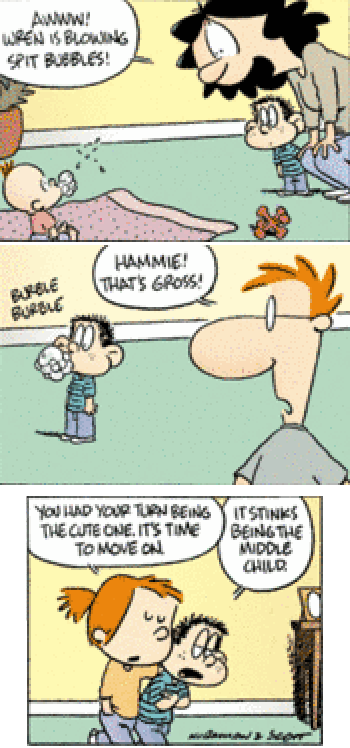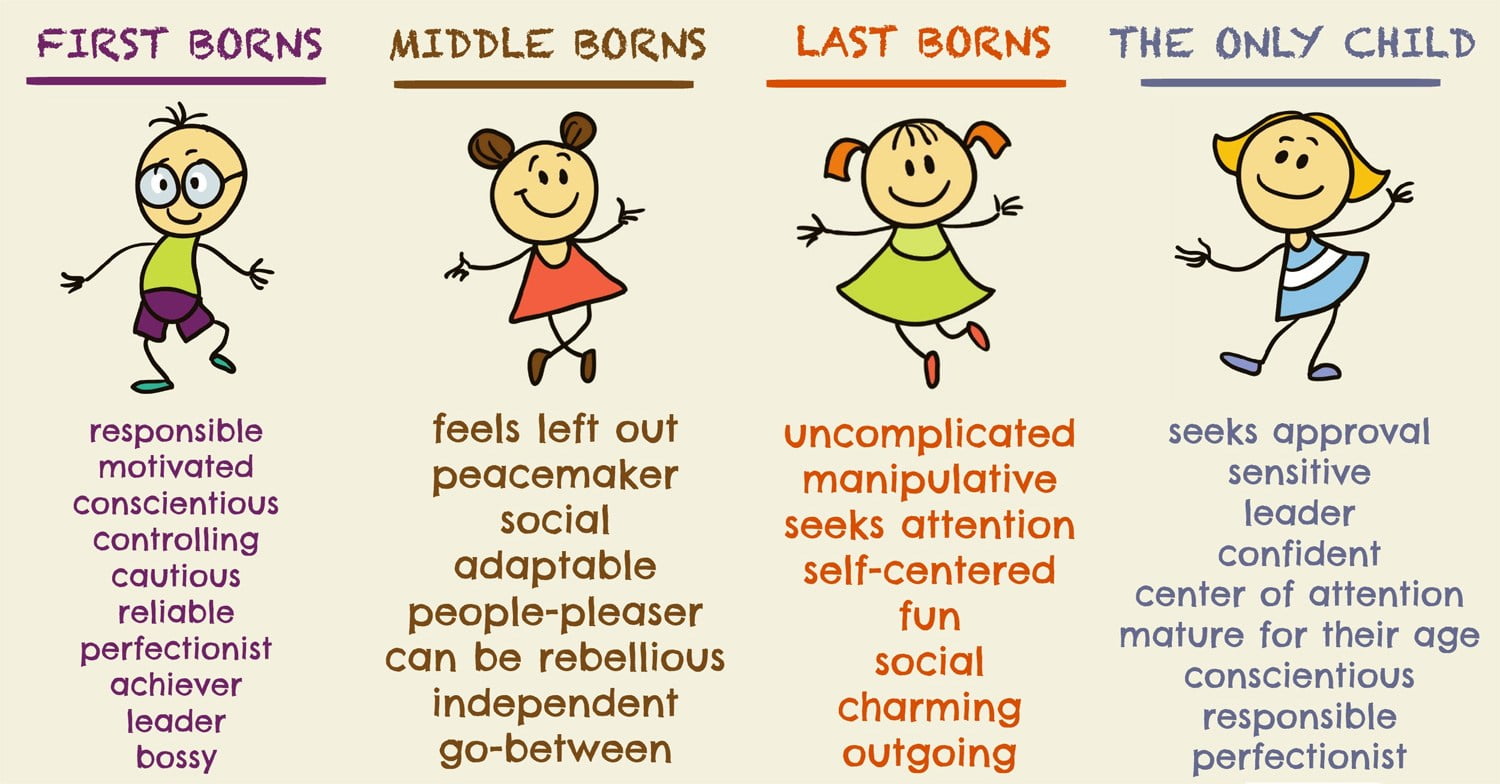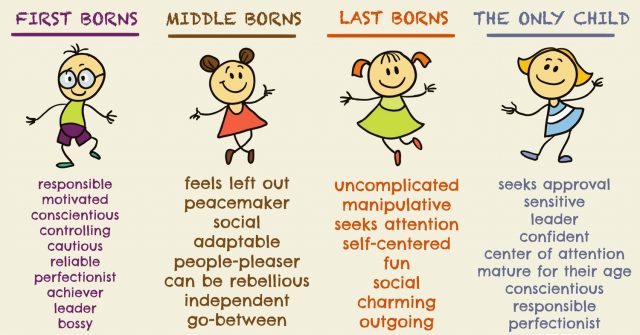By Deepa Thomas
Are you an attention-seeker? Prone to preconceived notions? Confused about your identity? Well, if you’re a middle child, I’m just going to blindly attribute all these problems to that regardless of the other issues in your life.
You are a victim of Middle Child Syndrome.
They don’t make a ‘syndrome’ out of just about anything (refer to Fish Odor Syndrome), so this is serious. Pay attention.
Middle Child Syndrome (MCS) is the feeling of exclusion by middle children. The older child usually gets all the privileges and responsibilities that come with being the first-born while the youngest one just gets spoiled silly.
This leaves the middle child in a state of in-betweenness – not grown-up enough for responsibilities, not cute enough to get pampered. In some cases, this leads to devising attention-seeking strategies at a young age.
Growing up, they usually have to work harder to make an identity of their own, breaking out of the ready-made one provided by the older sibling while trying to be a role model for the younger one.
1Interesting Read: 3 Insider Tips For Interns And New Grads
What better way to reinforce this mostly fictitious syndrome than by citing examples from some fictional characters in literature?
2Ron Weasley (Harry Potter series)

Coming from a family of six children and then having a sister within the span of a year (the first female to be born into the Weasley line after several generations) couldn’t have been too easy on poor Ron.
His reflection in the Mirror of Erised showed the unfair load of sibling-induced pressure on the shoulders of the 11-year-old. His lack of self-esteem is evident throughout the series but he is also annoyed when anyone else doubts that he could achieve something that he himself thinks impossible. Now that’s messed up.
In the seventh book, the Horcrux sensed his vulnerability and inherent lack of belongingness and used it to separate him from the pack for a brief period. Despite all of this, he is one lovable character and reliable friend who cannot be accused of having the emotional range of a teaspoon (wait a minute… oh well).
3Arya Stark (Do I even have to?)
Arya was born right in the middle of two older siblings who were the embodiment of noble upbringing and a younger lad who was their mother’s favorite (and then there was Rickon). From a young age, we see her struggle to fit in into the Stark family.
It was perhaps this feeling of being an outcast that strengthened her bond with Jon Snow. She knew she couldn’t be a “proper lady” like Sansa and resorted to being trained as a knight.
Soon she found that she could not fit into either category and relished the power to strip herself of any identity whatsoever as she trained under Jaqen H’ghar and learned to be a faceless assassin. All in all, her Middle Child Syndrome makes her an undeniably badass character.
5Jo March (Little Women)

When there are four daughters in the family, one of them is bound to be a regular tomboy. And who better to flaunt this difference than the middle-child? The second-born of the family, Josephine March, was a reckless, daring and determined child.
When their father was away serving in the war, she took up the role of being the man of the house quite literally with her whistling, slang language and the ruffling up of her clothes.
She took pride in shunning feminine styles and, in a way, feared the loss of her own unique identity if she were to embrace her femininity. Confused as she was about her identity, she had no qualms in revealing her motherly side while taking care of young Beth in her illness.
If you are a middle child and none of this applies to you, you’re one among many who lead perfectly normal lives. Besides, who wants responsibilities and pampering anyway? (Cries in the corner).
6Related: Watch – 5 Sectors Driving India’s Growth
Seriously though, being a middle-child has got its own perks. Middle-children grow to become more independent and adaptable individuals than their siblings and they are the glue that keeps the family together. So, give yourself a pat on the back for being a survivor of the in-between or share the love with all the middle-children you know. They deserve it for what they’ve been through.
Image Credits: Google Images
Sources: Pottermore, Healthline



































